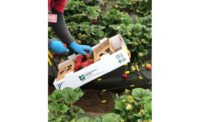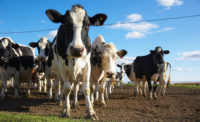Kraft Foods uses lifecycle assessment to help it
make the right changes and get the best results, from farm to fork and beyond.
Most people have heard the saying that you can't improve what you can't measure. But, measurement can be complex and time-consuming, especially when it comes to figuring out how to reduce environmental impacts. That’s why Kraft Foods is using lifecycle assessment (LCA) to help it make the right changes and get the best results.
LCA measures the footprint of what goes into making a product, from farm to fork and beyond.
"Lifecycle assessment is an important part of our sustainability journey," says Roger Zellner, sustainability director for research, development and quality for the Northfield, Ill., processor. "It gives us a competitive advantage, as we now have more insight into how to reduce our products' footprints, find efficiencies and validate and explain those benefits to customers and consumers. Together, we're focusing and working smarter and communicating better, which is good for the environment, people and our business."
This LCA work builds on the multi-year footprinting project Kraft Foods used to map its impact on climate change, land and water use. Today, employees around the world are using lifecycle thinking to help uncover ways to eliminate waste in manufacturing. This can reduce the amount of raw materials, such as agricultural commodities, used at the beginning of the supply chain. LCA also can help measure how product and packaging innovations improve on previous designs, and provide a common system to measure and explain those benefits.
For example, in the United States, the Kraft YES Pack salad dressing team used LCA to confirm their design has a reduced environmental impact, using 60% less plastic packaging than the previous container. And in Europe, the Tassimo single-serve beverage team's LCA showed they could reduce the carbon footprint of each T Disc beverage ingredient package by about 20% when upcycling them with partner TerraCycle and diverting them from landfills.
At the heart of Kraft Foods' reductions in packaging is its Eco-Calculator, a proprietary tool that helps packaging designers create more efficient, sustainable solutions based on data from the U.S. Environmental Protection Agency, the U.S. Department of Energy and packaging industry groups. The Eco-Calculator figures the percentage of post-consumer recycled material in a given package design, along with the amount of energy and carbon dioxide emissions required to create the package. It also tells packaging designers how efficiently they're using materials and how well their designs will fit a product's physical dimensions. The tool is used along with other business practices, like economic assessments and ability to manufacture, before deciding on a final design.
Get our new eMagazine delivered to your inbox every month.
Stay in the know on the latest food and beverage manufacturing markets.
SUBSCRIBE TODAYCopyright ©2024. All Rights Reserved BNP Media.
Design, CMS, Hosting & Web Development :: ePublishing


